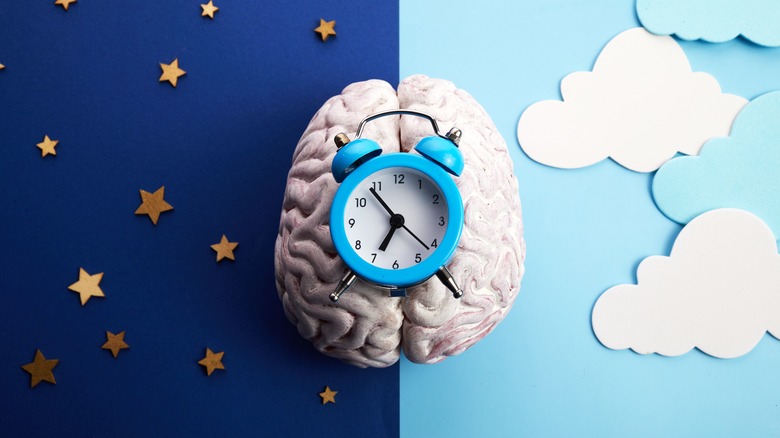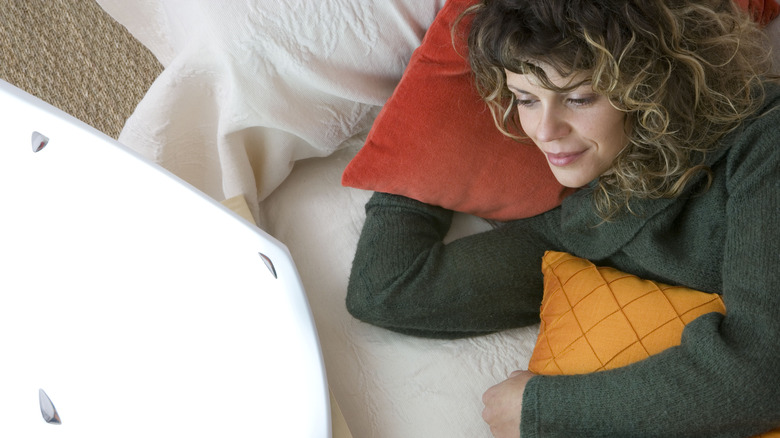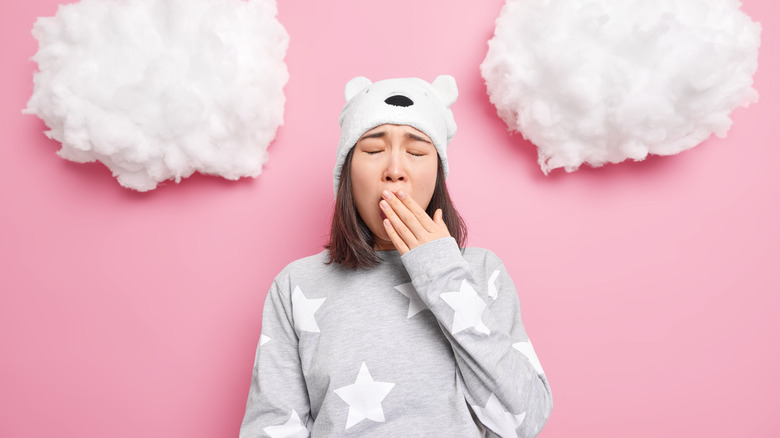If You Deal With SAD, A Psychologist Says Make These Adjustments To Your Bedtime Routine
We may receive a commission on purchases made from links.
As the days get shorter approaching the winter months, we might feel a vague sense of dread. (How do we stay positive when the sun goes down while we're still at work?)
According to the National Library of Medicine, between 10 and 20% of cases of recurrent depression can be tracked seasonally, in addition to other psychiatric conditions. And per the National Institute of Mental Health, Seasonal Affective Disorder, or SAD, typically begins as a young adult and is more likely to affect those with other mental health conditions, such as Major Depressive Disorder, ADHD, or anxiety disorders.
Our sleep-wake cycle may be impacted by changing light-dark cycles in nature, according to the Library of Medicine. And as the days get shorter, that can also affect our supply of melatonin, or sleep hormone. Until the winter solstice on December 21, when the days begin to get longer again, those impacted by SAD will have to find coping strategies or ways to mitigate the winter season's effects on their mental health.
Luckily, The List spoke to an expert in the field, Dr. Monica Vermani, a trauma, stress, and mood disorder specialist and the author of "A Deeper Wellness: Conquering Stress, Mood, Anxiety and Traumas." Dr. Vermani has 25 years of experience as a clinical psychologist and strategies to ameliorate, and even prevent, symptoms of SAD. With her comprehensive knowledge of psychology and stress-based sleep issues, this expert gave us major tips on making it through the winter.
SAD can be traced to changes in our circadian rhythms
Light therapy has been used to treat SAD since the 1980s, per the National Library of Medicine. It can help correct our circadian rhythms, which experience a change with the shifting seasons and in light-dark cycles. Phase-delay, or staying awake while the sun is down, may be related to the cause of depression symptoms, while phase-advance, or following natural light cycles, has been shown to improve depression symptoms.
Dr. Monica Vermani describes the symptoms of SAD as tracing back to tiredness. "People with seasonal affective disorder often find themselves feeling more tired and sleepy throughout the day or needing more sleep each night," she told The List. "Some people report having nightmares or disturbed sleep, where they are frequently waking up in the middle of the night and not feeling renewed and refreshed in the mornings."
Lack of sleep can lead to trouble regulating emotions and may lead to symptoms of depression. Dr. Vermani explained why sleep is integral. "In our deep sleep (REM) we renew and rejuvenate, and reinvigorate our immune systems. Healthy sleep cycles also help balance our moods, regulate anxiety, allow us to manage our anger and irritability — which allows us to be more responsive rather than reactive — and feel healthy and in control."
When sleep routines are disrupted or changed, it can lead to an overall deterioration in our mental and physical health. Thankfully, she had helpful tips for meeting our bodies' needs with seasonal changes.
This expert's advice may help you feel more rested
As Dr. Vermani told The List, "Without a healthy sleep cycle, we are more likely to struggle with feelings of moodiness, irritability, depression, high stress, anxiety, and a loss of control in life." When treating SAD or preventing its symptoms, she advised us to pay close attention to our bodies in relation to our routines.
"If you need a little more sleep, allow yourself more sleep during the winter months." There's a caveat, though. "If you find yourself sleeping to escape low mood or symptoms of depression, address these symptoms, as you may be suffering from severe symptoms of seasonal affective disorder. If your symptoms are seriously impacting your day-to-day functioning, seek medical treatment."
Sleep hygiene is vital when we're struggling with external factors like less light during our usual active hours. Dr. Vermani recommends keeping the room temperature comfortably cool and maintaining a quiet space before bed. She also encourages you to turn off your phone 30 minutes before going to sleep and avoid watching TV in bed. Do not exercise or eat before bed, since they both activate the metabolism. Sugar, caffeine, and alcohol can also affect sleep and should be avoided later at night.
If the transition between seasons has had an acute impact on your sleep, see a doctor. And, if you have the means to travel somewhere sunny, the boost in vitamin D may very well make the difference in getting you through the winter.


